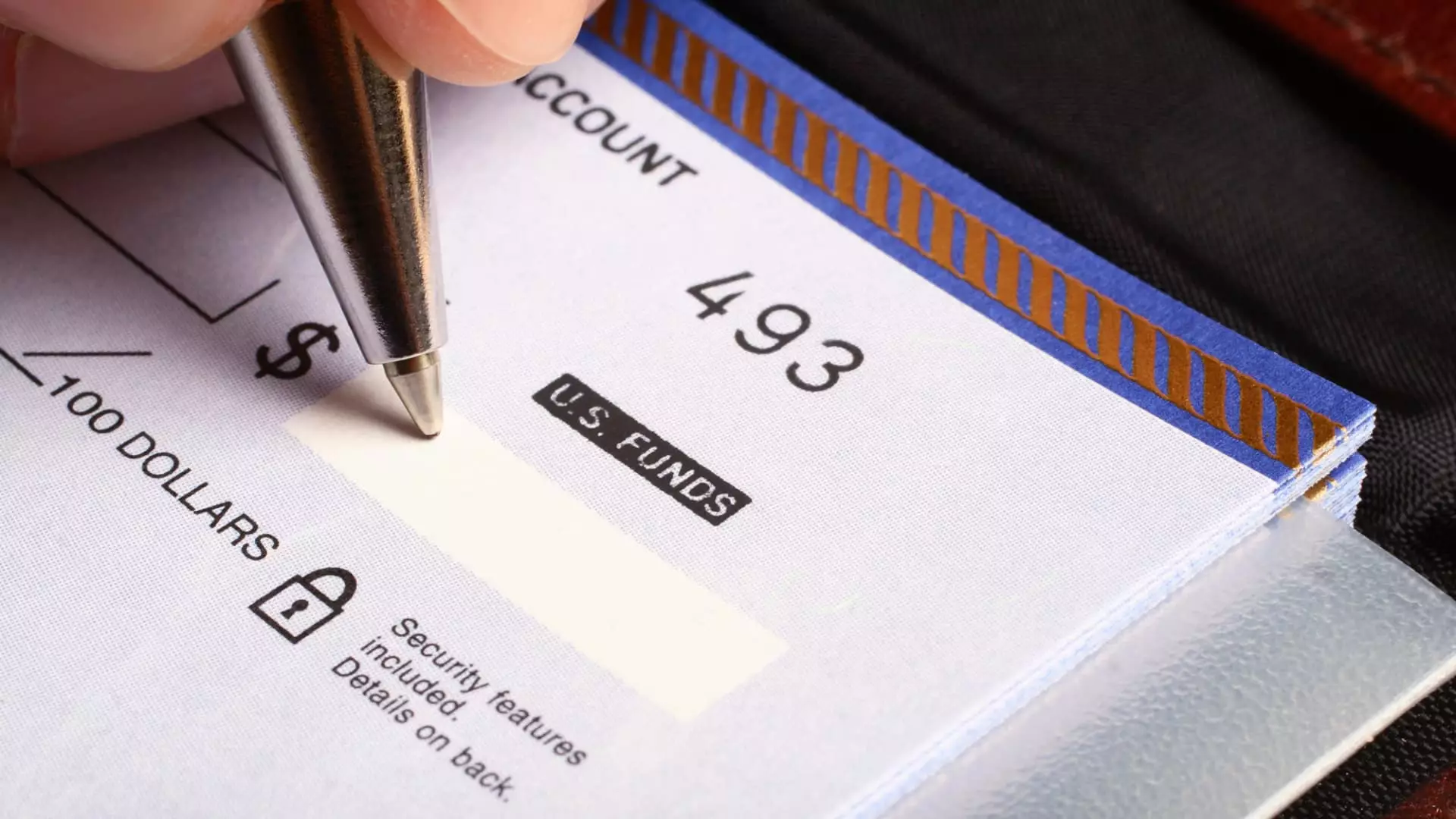In the swiftly evolving landscape of financial transactions, paper checks are becoming increasingly obsolete. With President Donald Trump’s executive order mandating a transition to electronic payments for federal disbursements, the writing is on the wall for the future of checks in the United States. By September 30 of this year, the government will phase out paper checks, a move that signals a significant leap towards modernizing a system long overdue for an upgrade. Paper checks have served a purpose in our financial infrastructure, but their time is ending, and this transformation offers both benefits and challenges.
The Driving Forces Behind the Shift
One of the critical reasons for this legislative change is the rampant fraud associated with paper checks. According to Haywood Talcove, CEO of LexisNexis Risk Solutions’ government division, the U.S. government could lose staggering numbers, with estimates ranging from $233 billion to $521 billion annually due to various forms of fraud. The risks associated with paper checks—including identity theft and lost payments—are no longer just inconveniences; they represent serious financial threats that impact millions of Americans. By transitioning to electronic payments, the government can significantly mitigate these risks.
Supporters of the move, including banking industry leaders, view the mandate as a necessary evolution towards customer safety and efficiency. Rob Nichols from the American Bankers Association lauds the decision as a way to reduce fraud and assure safety in transactions. Considering a landscape where check fraud has hit alarming highs, it is clear that the benefits of electronic payments transcend mere convenience—they can genuinely enhance the security of government distributions.
The Politically Divisive Nature of Change
Yet, any sweeping change in policy typically ignites debates. While many applaud the modernization, the implications for vulnerable populations cannot be ignored. Those reliant on paper checks—such as seniors receiving Social Security benefits—are often marginalized within the financial community, and shifting to electronic payments without adequate infrastructure can leave them in precarious situations. This demographic disparity raises ethical questions: should modernization come at the expense of those least equipped for it?
As a center-wing liberal, I argue that the transition must be managed with care and consideration for those who may not have immediate access to digital banking solutions. The digital divide exacerbates social inequalities, making it imperative for the government to provide targeted assistance—such as educational programs and resources—to help the elderly and underserved communities navigate this transition smoothly. Technology offers a promise of convenience, but it should not come at the cost of disenfranchising significant portions of the population.
The Generational Divide in Payment Preferences
The decline of paper checks reflects a broader generational trend. The younger populace is gravitating increasingly towards digital transactions, with peer-to-peer payment apps replacing the need for traditional banking methods. A staggering 46% of Americans reported not writing any checks in 2023—a testament to the fact that younger generations are digitally native and prefer instantaneous transactions over waiting for paper checks to clear.
As established banking practices become artifacts of the past for these digital natives, the shift ushers in a new era where cash is increasingly irrelevant, and checks are nearly non-existent. This cultural evolution marks a significant departure from the past, challenging older generations to adapt. As Stephen Quinn from Texas Christian University notes, even students who are more financially literate are turning entirely to mobile payments, signaling a definitive cultural shift.
Future Implications and the Evolution of Payments
The movement towards a cashless society raises significant implications for various transactions. While large, one-off contributions like charitable donations or real estate dealings may still necessitate the formality of a paper check, for the everyday consumer, the future is digital. As security technology progresses—ranging from biometric authentication to advanced data encryption—the leap to electronic payments becomes not just a trend, but a necessity.
The dialogue surrounding this shift inadvertently fosters questions regarding the role of banks in the new ecosystem. With digital wallets gaining traction, the traditional roles of banks may need reevaluation. Future banking might resemble a hybrid model where conventional institutions pivot to embrace digital solutions while ensuring that all citizens, especially vulnerable populations, have their needs met.
While the transition away from paper checks brings promising advancements and efficiencies, it is essential to recognize the complexities that accompany such a shift. A carefully curated approach can ensure a fair and equitable transition into a future where financial systems are modern, secure, and accessible to all—principles that fundamentally resonate with a liberal mindset favoring inclusivity and progress.

